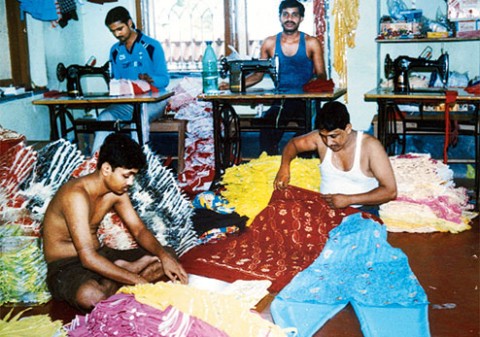BGF is calling for contributions to building up a set of Minimal Global Standards for Workers Safety and Rights. At the same time, we would like to put into discussion the question of Mr. Duc-Lai Bui, Assistant to Chairman of Vietnam National Assembly: Are there common solutions to improving minimal standards for workers from countries having different political systems and cultural values?
Opinions, comments and suggestions are welcome at [email protected]. And, here are some opinions from our fellows:
Jyoti Sinha, Phd, Research Associate, Sloan School of management, MIT
I don’t think a common solution for improving minimal standards for workers from countries having different political systems and cultural values would be a good option. It would be a very “generic set of standards” The different cultural set up and political system wouldn’t allow the common standard to be implemented at real work situations it differs nation wise. Nonetheless I am for a common solution for improving minimal standards globally but with nation wide rules implementations and amendments of labor laws wherever necessary. I dont know how much would an International body be ready to pay attention to the national issues. But because these developing nations produce garment consumed by the developed countries their intervention is justified and much needed.
Right to association at work place (one of the core labor standards) should be enforced in these workplaces and the workers needs and demand as a human should be attended. On the safety culture issues, in the third world countries like Bangladesh, India, Pakistan the word safety doesn’t exist and they lack positive attitude towards safety issues. Electrical appliances outburst if produces the spark for fire at work, there should be different rounds of testing for these appliances.
Sharing an article which talks about the inhumane clause of the garment sector employers in India which we should be addressing to. As i am researching on garment workers safety issues on South Asian Countries (India,Bangladesh,Pakistan) i thought i should share this point which would be much similar.
http://www.telegraphindia.com/1130918/jsp/opinion/story_17337269.jsp#.UjmS2dJmiSq
Selima Akhtar, Country Manager in Bangladesh, Impactt
When you are saying common solution to improve minimal standards for workers. To me there are three areas needs to focus:
– Government Role:
+ What are the policies government has applied in place? And who will look after that?
+ If someone not followed what would be the consequence and who will implement that?
– Workers Role:
+ What is the definition of a worker? Poor, no food in home and no education meaning worker?
+ Set up some criteria for a worker – minimum education needs to have,
+ Know about human role in the society and work – stay clean, live healthy, try to learn and listen to others – these are totally absent.
– Business Sector Role:
+ Follow govt rules and set up own criteria in the locality – e.g. not recruit less than five class pass, provide all working facility
+ Respect and treat worker as a human
+ Make a norm on share information and listen each other and solve problem or act quickly
+ These are the areas if all the parties role is recognized and they follow ; it would be very easy to implement a minimum standard for workers.
Mr. Duc-Lai Bui, Assistant to Chairman of Vietnam National Assembly.
I think there are common issues about Worker Safety and Rights (WSR for short) among less developed countries. However, establishing a common set of Minimal Global Standards (MGS) needs considering carefully. Such a set of MGS must correspond with very low standards in order to be in accordance with real conditions of less developed countries, hence lead to complacency in more developed countries whose conditions, if we put them in criteria for WSR, are not sufficient.
Another aspect is how to implement MGS. Workers’ problems needs the involvement of their organizations, authorities, governments and international organizations. This involvement differs from country to country according to economic and cultural development, politic system, and qualification of authorities. For example in Vietnam, WSR in some businesses are as bad as that of the case studied in Bangladesh. However, the reaction of workers is quitting their job and then there are always many others willing to replace them because of the lack of employment. Workers’ struggles via going on strike are limited because the operation of labor unions depends completely on business owners and never support any strike. Also, governmental authorities are corruptible. Therefore, while we wait for improvements inside the country, we need involvement from international communities who play important role in fostering the improvements. Civil organizations, customers associations of developed countries should put pressure on distributors, on governments of these countries and of producing countries to contribute to the implementation of MGS for WSR, as they are established. In current conditions, media play a very important, even the most important, in denouncing and condemning false activities as well as in calling for common actions.
